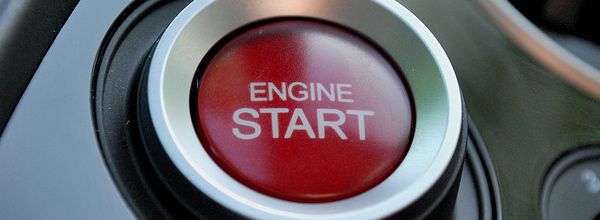Although bench work is an integral part of becoming a successful scientist, it is by no means the only part of it. It is often the uncredited skill set possessed by many seasoned scientists that make them so valuable to employers and to further research. In this article I will highlight the less obvious skills required to be a successful scientist (and ways to hone these skills).
Coaching
Often as a grad student you are tasked with training your juniors, whether by your own volition or not. Think like a coach drilling a team to accomplish their tasks without damaging themselves, others, and especially not the high-end analytical equipment in the process. The trick is to teach your underlings the way you would have liked to have been taught when you were at that level. Remember though, that we all learn best from our mistakes, so let them make their own and turn it into a useful teaching experience – who knows, you may be training a future Nobel prize winner.
Trouble-shooting
Murphy’s Law states that “If it can go wrong, it invariably will go wrong”. It is the one universal law that you are guaranteed to encounter, regardless of your field of study. In my experience, Murphy has a particular predilection towards machines. The machine that will tie your work together, the one that you’ve been planning to use since your project inception, and the one that everybody else uses successfully, will malfunction the moment you need it most.
Within smaller academic labs, the lack of budget for unforeseen equipment repairs can often leave you stranded if you let it. Don’t. It is often good practice to familiarise yourself with your equipment well in advance of your experiment. Talk to the older students in your lab who have experience on that particular instrument. Make sure to talk to the service engineers as they’re fixing or servicing any equipment, they will often show you the tricks that product specialists can’t. I have personally found forums and blogs (such as this one) to be invaluable for troubleshooting protocol and equipment hassles, try some of these:
- Chromatography forum
- Bio-protocol
- Biteisze Bio (of course!)
In the end, keep calm and remember that most problems can be solved with some deductive reasoning, common sense and most importantly by CONSULTING THE MANUAL!
Statistics
The bane of every life-science student is the dreaded statistical analysis needed to prove that your work has significance. It’s not enough that you’ve found the right experiment, worked out the kinks through nightmarish optimization, and finally gotten a useful result. But to realise at that point that you haven’t done enough stats on your work to show significance, used the wrong stats formula or, heaven forbid, that the experimental design was wrong to start off with is truly upsetting. If you’re lucky enough to have a biostatistician in your department then their advice could be invaluable. If not then there are plenty of resources available to brush up on your stats skills. This is a short list of resources that have been invaluable to me:
- Biostat Handbook
- Statistics for Terrified Biologists by Helmut van Emden
- Coursera
- edX
Politics
The research situation is a volatile one. No matter what your position is, navigating through this environment requires deft social skills to handle any situations that arise. Maybe you become a mediator for a tense workgroup or need to argue a point of order with your supervisor, or maybe you’re just trying to get the credit you deserve for work that has sneakily been expropriated from you. Whatever your goal, these situations require the tact, grace and savvy of a seasoned diplomat. Of course what you need to do varies per situation, but some of the things I have learnt are:
- Always be on the good side of admin assistants and procurements officers. They may not have a direct bearing on your project but they make sure that everything around you works smoothly.
- Your project supervisor is ALWAYS right. Especially when they’re wrong. If you need something that they might not agree to, make it their idea and let them take the credit for it. It’s a win–win situation.
- Sometimes in order to make things happen you need to work just a little bit harder than everyone else. Take the hit. It pays off in the long run and people will remember you for it.
While it may not be enough to become the President, understanding your lab politics is key to your present and future social success.
Being a Salesperson
Those who have tried pitching a project, a piece of equipment or even just writing the introduction to a research paper know that success is contingent mostly on how you sell your idea to the decision makers in the lab. Successfully pitching your thoughts and concept to a room of highly educated, extremely critical and very distracted individuals is both a strong confidence booster and powerful training for your future career.
Consult your senior students and Post-Docs, they have all had to master this skill to get where they are and their advice can be invaluable. Another underutilised resource is to pay attention to the sales reps that will inevitably visit, just watching them trying to make a sales target can be inspirational enough to add some pointers and polish to your own approach.
Most importantly: create your own style. Building on your past experiences as a part-time sales assistant, a high-school debater or even as a first year trying to convince a friend to watch an awesome new Netflix series will add flair and personality to your argument – you may not always win, but you will definitely get your point across.
Presenting
Presentations in science are something that everybody dreads, but are as inevitable as the change of seasons (or a new superhero movie). As above, it is just about trying to make a convincing argument on a larger scale (but only this time, nobody can disrupt you). The trick to a successful presentation is to make it your own. Customize your slides by adding in small recognizable quirks of your own personality, nerdy science jokes or attractive colours. Though visual aids are important, the way you actually deliver your material is critical. Practise in front of a mirror or to friends and family members to find a style that suits you.
Try not to memorize a speech, but let it flow naturally – it’s your work after all, nobody knows it better than you do. A little trick that I quite like is to get a lab buddy to ask you a pre-arranged question after your presentation – you know the answer already so you come off as extra impressive to the audience while psychologically pressuring them into not asking any more questions. There are many resources available to improve your speaking skills, try to check some of these out when trying to find a style that suits you:
In the end, these experiences shaped my perspective of being in the lab far more than the bench work did. And while I may have wasted some experimental or writing time in trying to master all of these other skills, I gained something far more valuable in the long term.
Are there any skills that you have found useful? Let us know in the comments.






